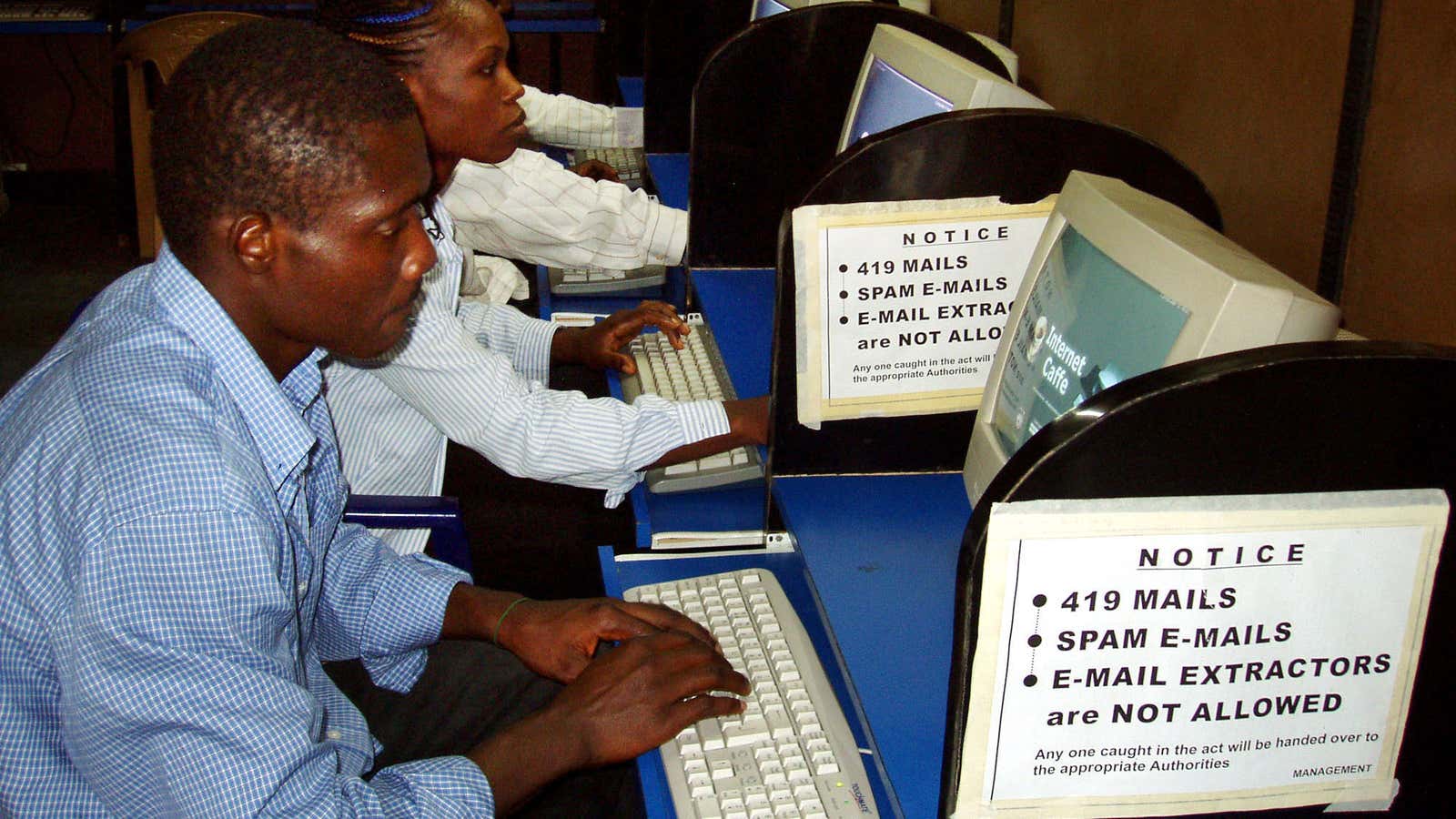There are fewer Nigerian princes on the internet today spamming you in their quest to offload large sums of money out of their country.
For the first time in a decade email spam now makes up less than half of all emails, falling to 49.7% in June, according to security company Symantec. Overall, average spam rates have been on a downward trend.
This is a stark contrast from 2008 to 2010, when spam made up nine in 10 emails. Around that time, sophisticated hackers were moving away from using their own servers, which made them easy targets of law enforcement, to rely instead on large bot networks. By installing malicious software on unknowing victims’ computers, they were able to build a network of machines to distribute email spam more efficiently and at greater scale.
But the level of spam dropped to 75% in 2011, thanks largely to high-profile takedowns of these networks, including the Mariposa botnet, which infected 13 million computers, and the Waledac botnet, which was capable of sending 1.5 billion spam emails a day.
Some thought that “new botnets would rise to take their place, but that doesn’t seem to be the case,” Kevin Haley, director of Symantec’s security response, tells Quartz. He expects that email spam rates will continue to decline.
That’s not to say that the internet is a safer place. Symantec has noticed new malware on the internet that suggests hackers are simply moving onto new channels, such as social media, where millennials are spending more of their time.
The way this malware is designed, once a victim clicks on a fraudulent link, it will spam that person’s friends with the same link and continue the cycle.
“The beauty of social networks is you can get users to send it themselves,” says Haley.
